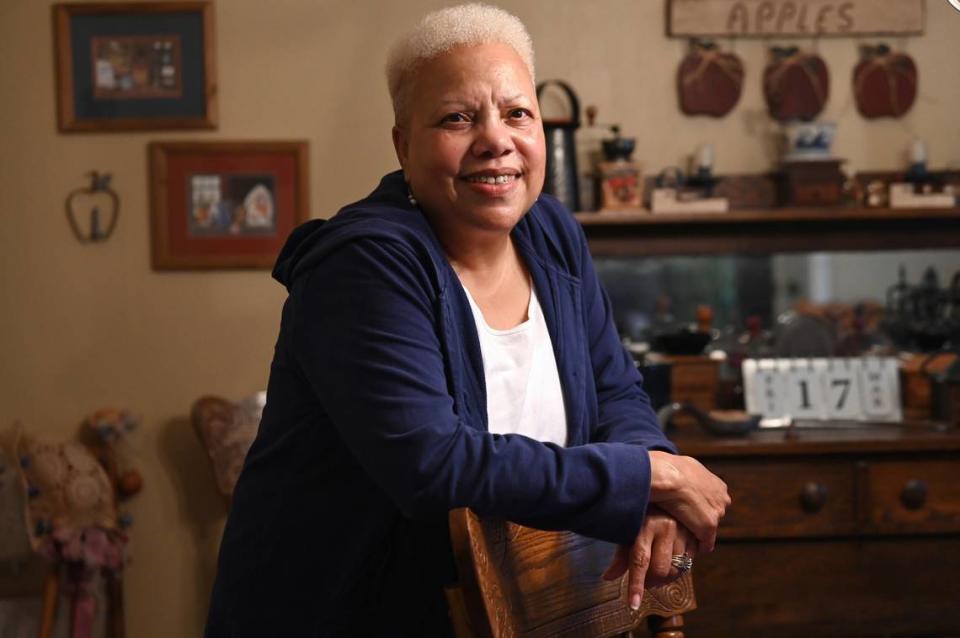How generations of Second Ward alumni thrived at Charlotte’s first Black high school
When Second Ward opened in 1923, it was historic.
The school based in the former Brooklyn neighborhood was the first Black public high school in Charlotte. It’s impact reached far beyond that neighborhood, though, says Arthur Griffin, a Mecklenburg County Commissioner and a 1966 Second Ward graduate.
The school became an anchor for Black Charlotteans. Students attended from across the city. From the historic Brooklyn community that was destroyed through urban renewal, to the still standing Cherry neighborhood, it was a hub for Black families. There, teachers inspired children and provided a nurturing environment for Black youth during segregation.
This year Second Ward, which closed in 1969, celebrates its 100th anniversary, bringing to the forefront the school’s role as the heart of a thriving Black community.
A group of women have worked diligently to keep the cherished memories intact and preserve the school’s legacy, Griffin said.
“It was a labor of love,” Griffin said. “But this experience needs to be saved.”
Generations of Second Ward alums are living around the country, with multiple local alumni chapters stretching as far north as Washington, Maryland and New York.
The Second Ward High School National Alumni Foundation will host the school’s 100th anniversary with several events this spring and summer.
Celebrations begin May 4 with the North Carolina State Board of Education announcing a resolution honoring the school and its national alumni association.
On July 15, Tiger Day takes place at the Second Ward Gymnasium and on the grounds of the Mecklenburg County Aquatic Center, 800 E. Martin Luther King Jr. Blvd. A community festival will be held that day with food and exhibits organized by the alumni foundation. Labor Day weekend, the alumni leadership will host the school’s centennial celebration at the Sheraton Hotel.
For this series, we spoke with five former students — one from each decade — who shared how Second Ward shaped their lives.
John Cuthbertson
Class of 1939
On late nights John Cuthbertson sat by an oil lit lamp to finish his schoolwork. As the son of sharecroppers, he balanced life at Second Ward with farm life, he said. Afternoons were filled with farm work.
Early mornings, he was greeted by his mother’s bacon and eggs before tending to the cows. After washing up he walked five miles to Second Ward from the farm in north Charlotte.
“I did what I had to do,” said Cuthbertson, who is 104 and among the oldest living Second Ward graduates. “We had no transportation of our own.”
But this was life as a Black Charlottean then, he said. Black children from all over Charlotte and Mecklenburg County would walk to the only high school Black residents could attend. Second Ward was based in Brooklyn, which was a city within a city, he said.
“We had everything,” he said. “We had doctors, preachers, schools and everything you needed.”
At Second Ward, Cuthbertson blossomed.
Second Ward was not only a school, it was a hub for the Black Charlotte community at the time. Cuthbertson said neighbors lived miles apart back then. It was only at school where he could build lifelong friendships.
Cuthbertson said his family firmly believed in education. When his father had a heart attack, he left school for two years to work the farm. But his father urged him to finish his education.
He graduated ninth in his class and is fluent in French. With his sharp skills, teachers asked him to lead a French class while he was a student.
The class of 1939 would be the last Second Ward class to end at 11th grade. Cuthbertson went on to work the railroad where his strong education garnered him the nickname “schoolboy,” he said.
The incredible education at Second Ward changed his peers’ lives as well, he said.
“A lot of my classmates became professionals,” Cuthbertson said. “They left for college and did good.”
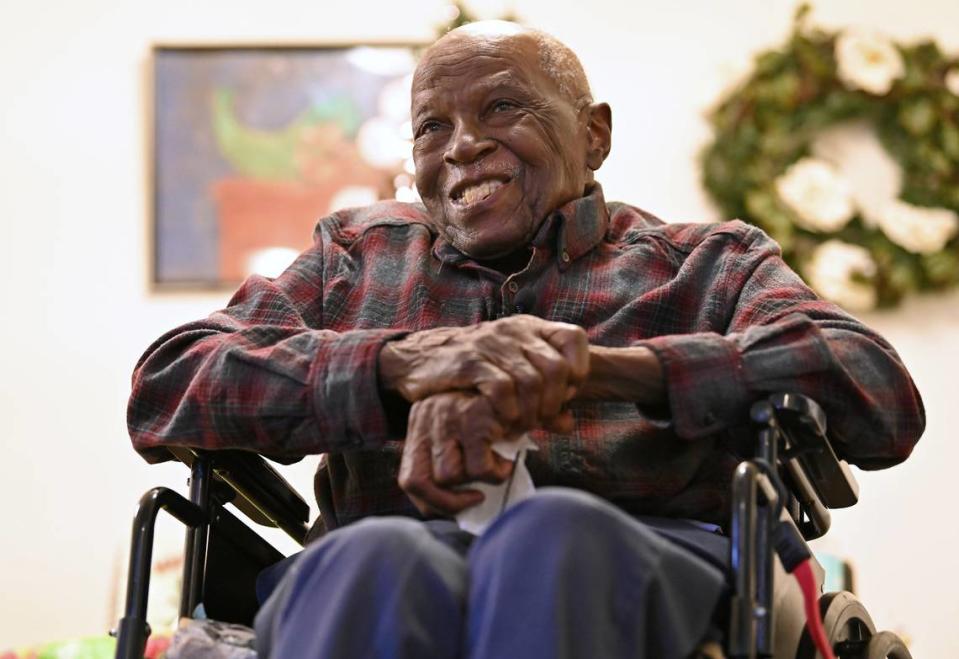
Mildred Smith Grier
Class of 1941
As a retired educator, Mildred Smith Grier knows the value of education. It’s why Second Ward has a special place in her heart for paving her career path.
Grier grew up in Third Ward. Rain, shine, sleet or snow, she walked to school with her six brothers every day, she said. Her mother would have lunch prepared when they returned home. She and her brothers would play school in their backyard, imitating the teachers they met at Second Ward, she said.
It was her first taste of what became her profession.
Grier made history being a member of Second Ward’s first 12th grade class.
“I should have finished high school in 1940,” Grier, 99, said. “But they put on one more year.”
She would make history again with Second Ward’s help. Grier said when she was young she did not imagine going to college. Her Second Ward teacher Ed Brown, then president of Johnson C. Smith University’s alumni association, encouraged her to go.
Brown traveled to students’ homes to see if they had interest in attending the HBCU. With his help, Grier earned a scholarship. She ultimately was among the first freshman class of women at Johnson C. Smith University in 1941.
It was the kind work beyond the classroom that inspired her to be an educator years later, she said. It was also why students shared such beautiful memories of the school, Grier said.
The educators went above and beyond for their students.
“We just loved Second Ward,” Grier said.
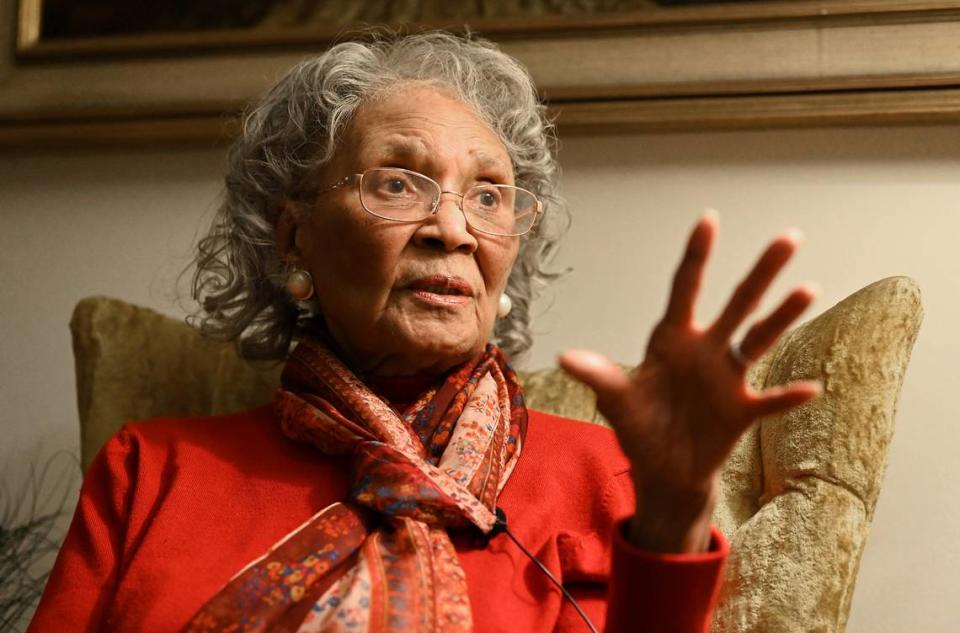
Juanita Tolbert
Class of 1952
When Juanita Tolbert reflects on Second Ward, she remembers her time as a nimble, left-handed forward for the basketball team.
“I was the youngest girl on the basketball team,” Tolbert, 85, said. “I can’t remember a game we lost.”
As a basketball player, she was able to travel outside the city and other parts of the state such as Salisbury and Asheville. Tolbert’s older sister helped inspire her passion for basketball.
“She was number one,” she said.
Tolbert grew up in Charlotte’s historic Cherry neighborhood where kids participated in a variety of sports. At age 12, she started a parade on Luther Street with her friends in Cherry. They used broom handles to make small batons for the parade, she said.
It was one of many tight knit Black communities to feed into Second Ward, Tolbert said.
Similar to other Black students of her time, she walked with her siblings from Cherry to Brooklyn, where Second Ward was based.
“We had some beautiful, wonderful teachers,” Tolbert said.
Within the walls of Second Ward they instilled confidence in the children, she said. It prepared them for life outside of the school. It built them into upstanding citizens, she said.
“The school meant a lot to me and my family,” Tolbert said.
They learned how to work alongside their community and how to give back to it. Tolbert, a retired nurse, was inspired so much by her teachers, she wanted to follow in their footsteps, she said.
But a biology class at Second Ward drew her to nursing. Teachers took time to give students the tools to pursue whatever profession they chose, Tolbert said.
“That’s why we loved our teachers,” she said.
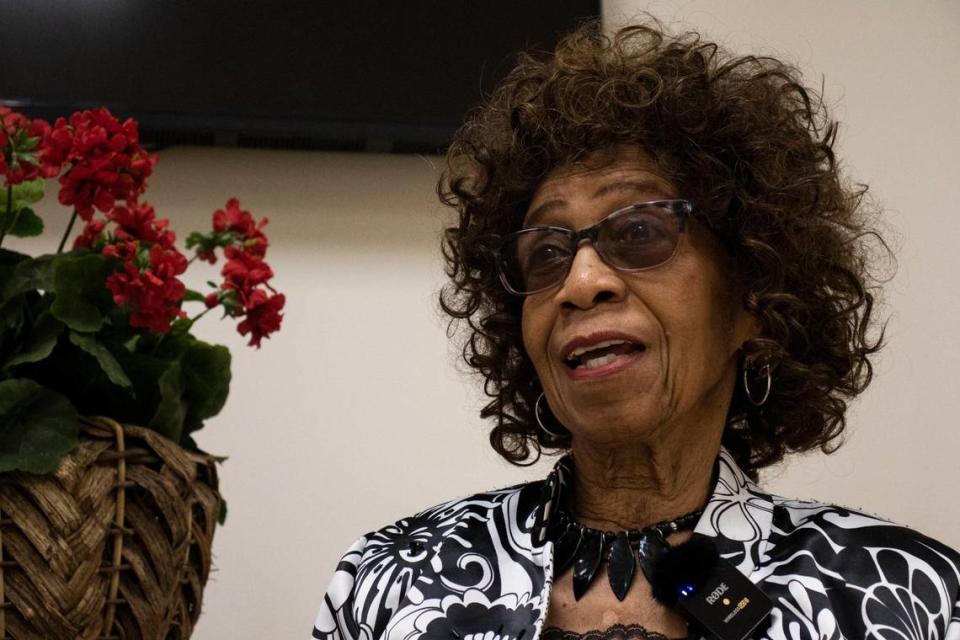
James “Jim” Coleman
Class of 1965
Jim Coleman, a Duke law professor, grew up on East Hill Street in Brooklyn. Back then he played sports in the streets and made make-shift basketball goals in dirt driveways, he said. His home and others in the neighborhood were called shotgun houses.
“It was basically three rooms in a row,” Coleman, 76, said. “You could shoot a shotgun from the front door and not hit anything.”
Coleman is the oldest of his siblings. His grandmother lived next door to him and was heavily influential in his life. In his youth, Coleman was a voracious reader. His grandmother would invite him over to listen to him read articles from The Charlotte Observer and The Charlotte News.
“Everybody wanted to make sure I got a good education,” he said. “Teachers at Second Ward thought I had potential.”
Growing up in the 60s, he was aware of racial strife going on across the country. He knew it was wrong and he wanted to change it. But at the time, he did not see it directly affecting him.
“I was in a segregated cocoon,” he said. “That was my life.”
In that cocoon, he excelled.
In his senior year at Second Ward, he worked in the office of civil rights attorney Julius Chambers. An educator at Second Ward recommended him. There he received his first view of what an attorney does. It was the first time he saw law as a profession he could pursue, Coleman said.
His teachers showed him education provided a pathway to any dream he had, he said.
“They were responsible for me getting to focus on education,” Coleman said. “And getting me to believe it would make a difference.”
Coleman attended a post-graduate year at Phillips Exeter Academy in New Hampshire, later earning a bachelor degree from Harvard University.
No matter where he was, he carried his Second Ward swagger. He never felt out of place in any room, he said.
“I believed I could do anything,” Coleman said. “That’s what the teachers at Second Ward instilled in us.”
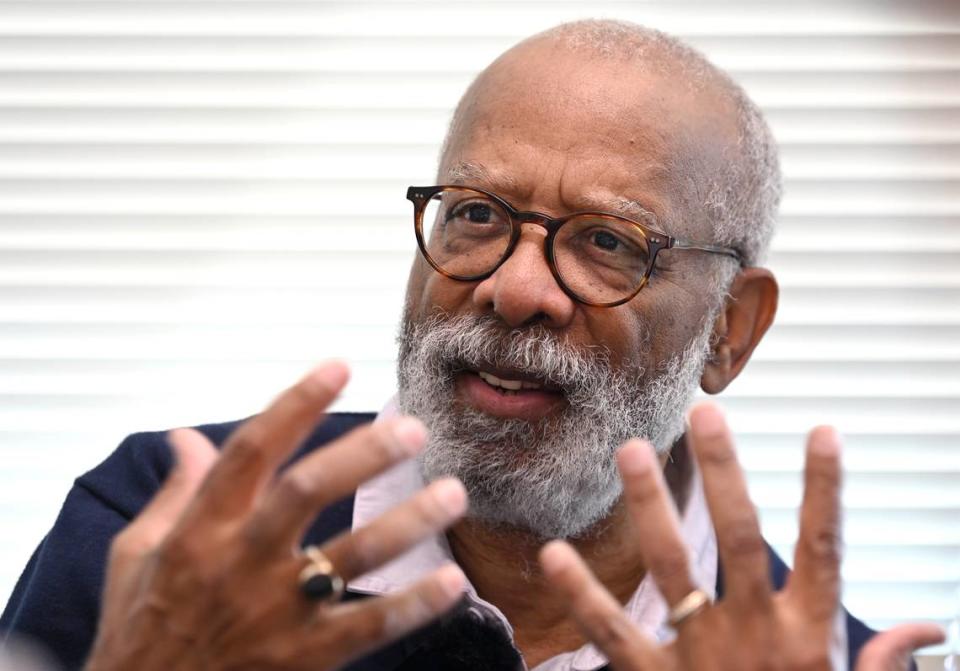
Mary Simpson Singleton
Candidate for the class of 1971
Mary Simpson Singleton, a retired educator, did not graduate from Second Ward. But few have as much Tiger pride as she does.
She grew up with 12 siblings and several relatives in her parents’ house. Her siblings and relatives all attended the school, she said.
“Second Ward was our school,” she said.
Her family bounced around when she was a youth from Seventh Street, to Seventeenth Street in a section now called NoDa. At one point, 25 people lived in her family’s house sharing one bathroom, she said.
Her mother had a fifth grade education but was an avid reader, she said. Her mother encouraged all her kids to become educated, Singleton said.
“She was one of the smartest people I knew,” Singleton said.
Singleton grew up driven as a student. She was a part of Project Opportunity — a program for Black students who excelled academically. The program created a tight knit group of friends for her through her elementary school years and into Second Ward, she said.
The school has a significant role in her life. Her husband Spencer Singleton graduated Second Ward in 1968. On one date, they watched a Second Ward school play where Berlinda Tolbert, a graduate, performed. Tolbert later became an actor and cast in “The Jeffersons,” a hit TV sitcom. Tolbert’s elegance on the stage inspired her, Singleton said.
It was a shining example of the talent produced by the school, she said. All the students at the school behaved their best. The educators were dedicated and set high standards, she said.
“They had an image to maintain.” Singleton said. “It was important that you conduct yourself in a disciplined manner.”
Around 1967 the city had a bond referendum, which lead to urban renewal. As it swept the historic Brooklyn neighborhood, Second Ward was slated to be closed.
School officials proposed a new high school, called Metropolitan High School, to replace Second Ward, Singleton said.
“They didn’t keep the implied promise they would build a new school,” she said. “But all I knew at the time was that they just decided to close the school.”
After Second Ward closed, Singleton transferred during her junior year to West Charlotte High School and later to East Mecklenburg High School, where she graduated. To this day Second Ward and its alumni feels more like home, she said.
“Second Ward meant too much to my family,” she said. “I still think I’m a Tiger.”
